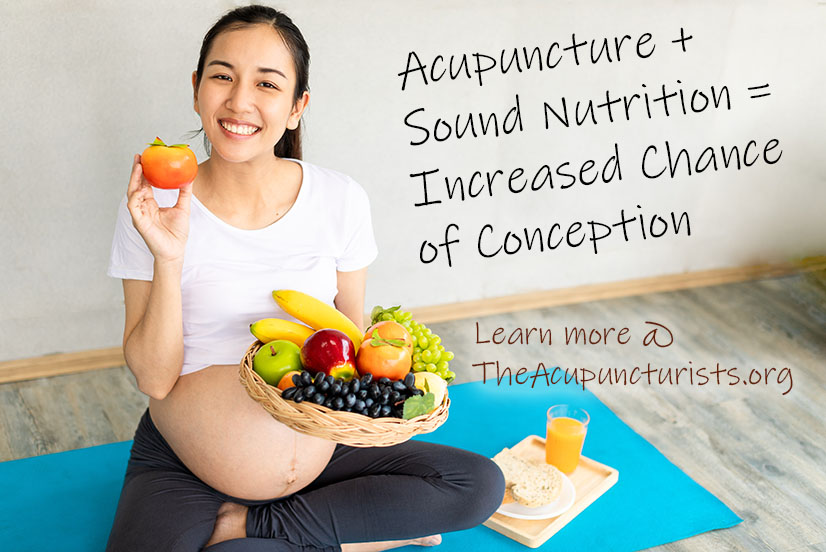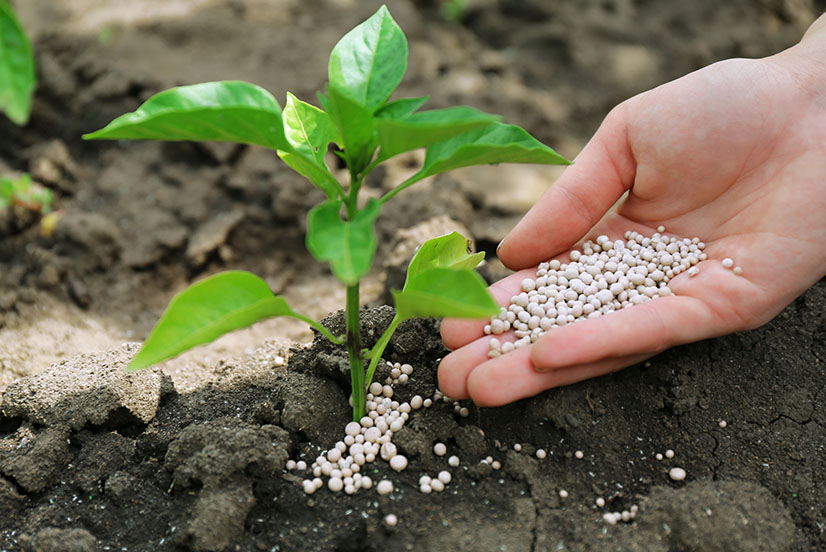
By Amy Carlson, Nutritionist – Margate, Florida – One of the most powerful health choices you can make when preparing for fertility is your diet. For both men and women, eating a diet rich in whole foods, vitamins, nutrients, and antioxidants will help in preparing for pregnancy. Many studies have shown that even small changes to your diet can help in optimizing fertility outcomes such as conception, preventing miscarriage, carrying the baby full term, a low stress delivery and even through breastfeeding and post-partum care.
Food contains the building blocks of hormones- the start of the fertility process. By changing you and your partner’s food choices, you will be giving your bodies a more ideal environment for better functioning. There are key nutrients that are involved in hormone production, but instead of worrying about individual nutrients, it is best to try and incorporate a variety of foods throughout the week to ensure you are getting the majority of what your body needs from food. Once you make an effort to change these habits, supplements can be discussed to fill in any missing gaps.
What you eat is just as important is what you don’t eat. Just as whole foods contain essential nutrients, there are a few things that some foods contain that can hinder or be harmful to your fertility goals. Although many of us feel that we are eating fairly “healthy”, it may not be ideal for fertility. Common things we see that some consider “healthy” are too low of calories, a diet too low in fat, carbohydrates or protein, not enough fresh whole foods, or foods that are very processed containing preservatives and harmful food chemicals. Regardless of what your version of “healthy” seems to be, we want to share with you what research has found a fertility diet to be- one that supports fertility from egg health, sperm health, conception, and fetal development.
A famous study done by Harvard Medical Research has shown that diet, along with other lifestyle practices, affects fertility (here is a link to a book published based on the study). The following recommendations are based on research (in particularly from The Weston Price diet and the Harvard Medical Study), dietary practices from the most fertile communities, and other nutritional data which is known to reduce complications during pregnancy.
- Eat an abundance of organic fruits and vegetables. Eating 100% organic may not be an option for you. That is not an issue. Look at The Dirty Dozen and Clean Fifteen for those produce items that should be purchased organic when possible. For a full list click here. Strive to have 80% of each meal be from fresh vegetables. Use fruits as snacks or as desserts (see end of article for recommendations). Variety is key when it comes to fruits and vegetables. Buying fresh is optimal, frozen would be the next best thing, and if it’s a must, canned- although be sure there are not any preservatives or added fillers, sugars, etc. Fresh fruits and vegetables provide nutrients like antioxidants, vitamins and minerals -the key things in a fertility diet.
- Eat organic, grass-fed, and pastured animal proteins. Better yet, befriend an organic farmer and get your animal products from them directly. All animal products should be from places that feed their animals their natural/optimal diet and treat them humanely. Sometimes it takes a little effort to find these products, but worth every minute and penny.
- If you are eating dairy, eat organic, grass-fed, full- fat raw dairy. Again, this may take going directly to an organic farm. Weston Price is a good resource to use to find such places. If raw is not obtainable, then be sure to buy organic full- fat dairy products. Dairy does not agree with everyone and is not a must in any diet. For certain congesting conditions like endometriosis and PCOS, use milk alternatives like coconut milk or another nut milk, but never soy.
- Include cold water, wild caught seafood. These supply the body with essential fats like omega 3s and vitamin A, plus they are great source of protein. Alaskan halibut, cod, and salmon are great choices. Avoiding larger fish like ahi tuna, swordfish, and Chilean sea bass is recommended due to the potential higher levels of mercury. And while we are mentioning things from the water, sea vegetables are excellent sources of minerals and trace elements like iodine, a key player in thyroid health. Try adding chopped nori or kombu to your salads or incorporating a seaweed salad a couple of times a week.
- Eating whole grains and legumes can be beneficial to include for fiber. Fiber helps to balance blood sugar levels- this is essential for optimal hormone levels, especially estrogen. Within your microbiome of your gut is your estrobolome- bacteria that help to metabolize circulating estrogen. Fibers feed these beneficial bacteria, so making sure you are getting a variety from fruits, vegetables, some grains and legumes. Most fiber can be obtained through eating vegetables and fruits. However, legumes like lentils, adzuki beans, black beans and chic- peas can be added to meals and are another good source of protein as well. Try to find legumes that are sprouted for optimal digestion and absorption. Whole grains like oats, millet, bulgur, whole wheat, brown rice, and arrowroot contain fiber as well. Again, eating these grains in products that are sprouted is best for digestion and absorption. If you find yourself sensitive to gluten, then use gluten free grains.
- Find a place for nuts and seeds as snacks or as toppings. Seeds like quinoa and buckwheat are great sources of protein. Other seeds like flax, chia, and pumpkin seeds provide antioxidants and omega 3s. Nuts like macadamias, walnuts, almonds, and cashews can offer protein and are excellent sources of essential fats like omegas, vitamin E and trace minerals like zinc and selenium. Getting a wide variety of healthy fats is crucial for hormone health because fat and cholesterol provide the basic structure for making hormones.
- Drink plenty of water and be sure it is clean and filtered of common additives like fluoride or chlorine. Get yourself some kind of filtering system, whether it be a pitcher or home system to filter your water. You can view ratings and reviews for water pitchers here.
- Include cultured foods for probiotics. Foods like yogurt, kombucha, sauerkraut, kimchi, kefir, and other cultured vegetables are wonderful to add throughout your meals or your day. These foods are fermented and cultured to provide wonderful probiotics that live in your gut. Those good bugs are needed for your own immune system and for when you share your immune system with your baby during birth and during breast-feeding. Many moms report that cultured foods helped relieve their constipation in their later terms during pregnancy as well.

Foods or items to avoid when planning for and trying to conceive:
- Soy– there are many processed soy products out there so it is best to avoid this all together. There are many people that do eat non-GMO, organic soy products where it is never an issue. If this is a staple in your diet and you are at all concerned, consult with your practitioner if they feel this is safe for you to continue with eating during pregnancy.
- Caffeine- there has been evidence that caffeine can affect hormonal imbalance, mainly from its effect on cortisol levels. It may be best to avoid this all together or monitor the amount of intake in one day. Some say 1 cup of coffee containing less than 120mg of caffeine is completely fine.
- Sugar, especially processed items- processed sugar foods are one of the main culprits in hormonal imbalance in our country. We consume too much sugar and most of it is not natural sugar. It may be a good idea to track your food intake for the day to see how much sugar you are actually consuming. You may be surprised. Although maple syrup and honey are natural forms, it still contributes to the total load of sugar. Be mindful of your consumption of sugar throughout the day.
- Soda and pasteurized juices– these have too much sugar compared to the amount of nutrients you are actually getting- or lack thereof when it comes to soda. Use kombucha if you are trying to find another choice besides water.
- Alcohol– this is well known; the small amount of alcohol that is in some kombucha drinks due to the fermentation process is ok
- GMO foods– foods that have been genetically modified are consistently being looked at for their effect on sperm and egg health. Avoid these foods as best as possible.
Goals when planning your daily food choices:
- 1-2 servings of dark leafy greens- spinach, kale, swiss chard, collard greens, bok choy
- 3+ cups of additional vegetables on top of the leafy greens- try to have broccoli 3-5x / week
- Root vegetables or starch 1-3x/day
- Protein with every meal- animal or legume or grain
- Whole grains 1-3x/week
- Legumes 1-3x/week
- 1 serving of seeds per day
- Serving of nuts 2-4x/week
- Coconut oil, olive oil, or grass fed butter daily
- Half your body weight in ounces of clean water daily
- 1-2 fertility superfoods per day- whether it be in juices or in a greens powder or something you make, be sure to include at least one of the following: liver, caviar, pomegranate, tart cherries, cod liver oil, wild blueberries, camu camu powder, or sprouts
Sample Meal Plan – A day eating a “fertility diet” could look like this:
- Wake up: warm water with lemon and ginger
- Breakfast: 2 eggs with spinach, mushrooms, onions and peppers and ¼ c of full-fat yogurt or cottage cheese with wild blueberries
- Drink water
- Morning snack: small handful of pumpkin seeds with 5-6 prunes or apricots
- Lunch: large mixed leafy green salad with grass-fed beef strips, tomatoes, radishes, cucumbers, red onion and broccoli with olive oil as dressing; cup or bowl of broth based vegetable soup
- Drink water
- Afternoon snack: caviar or olives on seeded crackers with kombucha
- Dinner: chicken thighs with skin and kimchi, steamed broccoli, acorn squash
- Drink water before bed
- Evening snack: bowl of tart cherries with chia seeds, flax seeds and coconut cream

Herbs and Supplements
Of course there are many supplements and herbs to assist in your fertility journey. Many of those should be gone over with your practitioner in order to know which would be beneficial. Some herbs can contradict another herb’s actions; some herbs can disrupt hormone levels, or even affect ovulation. So it is important to consult with a skilled herbalist. There are a few basic supplements and herbs that almost everyone can use and are listed below.
- Essential Fatty Acids– DHA and EPA- Omega 3s or Fish Oils: a wise idea to include these in your fertility diet. For many years, studies have shown positive effects on what DHA and EPA can do for your health. While you get these in foods like salmon, cod, sardines, grass fed and finished beef, chia seeds, flax seeds and walnuts, most people don’t get enough just from their diet alone. Nordic Naturals, New Chapter, or Blue Ice are all brands that have high standards and make good fish oil products.
- Vitamin D: although it seems easy to get this from the sun- time, skin color, seasons and other factors may be an obstacle in getting enough. Vitamin D is actually a hormone. It is involved in so many health roles, and in particular for fertility it is needed to make and help balance hormones. Eggs, fish, cod liver oil, and grass-fed butter all contain vitamin D. Supplementation may be needed, especially if you come across some of the obstacles listed above.
- CoQ10 Ubiquinol: needed for energy production in cells. This nutrient has been shown in many studies to protect DNA from free radical damage, therefore improving egg and sperm health; especially the motility of sperm. It is found in organ meats, but not easily obtained through food.
- Magnesium: because it is so depleted in our soils, magnesium is often supplemented and should be highly considered during fertility planning. Magnesium does a lot for our nervous system and is involved in muscle contraction as well as plays a role in balancing cortisol- the stress hormone. It’s also a huge help in preventing or helping to relieve constipation issues. It is found in foods like figs, dark leafy greens, seaweeds and some whole grains. However, since it is difficult to get from foods, supplementation is a good idea. An easy and relaxing way to get magnesium- an Epsom salt bath! Since a daily Epsom salt soak may not be reality for you, then brands like Klaire Labs magnesium glycinate, Mary Ruth’s Nighttime Minerals, or even Natural Vitality’s Calm Magnesium powder may be a good option in your fertility diet.
- Chinese herbs: can be extremely helpful in improving hormonal balance, ovulation, and preparing the uterine lining for implantation. Learn more about Chinese herbs for infertility in this special section.
Everyone’s fertility path from planning to conception to delivery is very unique. This article is meant to provide some good basics and things that may be helpful to your health. Always consult with a professional though if you do have questions or concerns regarding your fertility status.
The Acupuncturists, Dr. Robert Herbst and Dr. Landon Agoado, are skilled physicians and herbalists that always incorporate sound nutritional guidance in their work with patients struggling with fertility issues. Along with acupuncture treatment and Chinese herbal medicine, improving diet helps improve fertility chances many times over. If you are struggling with fertility give us a call. We can help. Consultations are always free.
Learn more about Acupuncture for Infertility
References
- The Weston A. Price Foundation
- https://www.westonaprice.org/health-topics/womens-health/fertility-awareness-food-and-night-lighting/
- Harvard Health Publishing
- https://www.health.harvard.edu/diseases-and-conditions/follow-fertility-diet
- Natural Fertility Info – https://natural-fertility-info.com/fertility-diet
